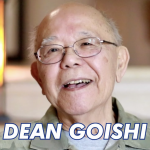On March 9, after two years in Florida courts trying and failing to win the right to end his life with dignity, Charles Edward Hall, 36, died of AIDS. In an interview last year, Hall spelled out his assisted-suicide appeal: “It’s not killing myself when I get to the point where I’m only existing. If I’m not functioning as a human being, why not just get it over with?” Dr. Cecil McIver had agreed to prescribe a lethal dose of morphine, but was blocked by the Florida Supreme Court’s classification of such aid as manslaughter. The tragedy of Hall’s death, his doctor said, is that he died in the very way he was trying to avoid.
Bill Hertz, hairstylist and avid gardener, died of AIDS February 17. He was 43. In his 13 years with the virus, Hertz perfected the practice of mind over matter as a way to carry on. “At bad times, spirituality was his savior,” said his sister, Lauren Abrams. In recent years, Hertz devoted the lion’s share of his energy to serving meals to PWAs through the San Diego organization Special Delivery. “Billy was one in a million,” Abrams said. “He was a beautiful little man with a spirit that was half-genius, half-simpleton.”
Brian Hurley, actor and crusader for gay liberation, died February 16 of AIDS at age 49. Hurley’s activism spanned 25 years, beginning with the rough-and-tumble days of the Gay Activists Alliance (GAA) and ending with the relocation of the Hetrick Martin Institute (HMI) for New York City’s gay youth. As the receptionist from 1987 to 1996, Hurley welcomed many young people into HMI. After his death, the Institute renamed the reception area in his honor. Verna Eggleston, HMI’s executive director, recalled Hurley’s courage in disclosing his AIDS diagnosis at a staff meeting in 1994. “That’s what moved me most about Brian,” she said of his example. “More people have disclosed since then.”
Advertisement
Advertisement
Advertisement






Comments
Comments